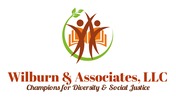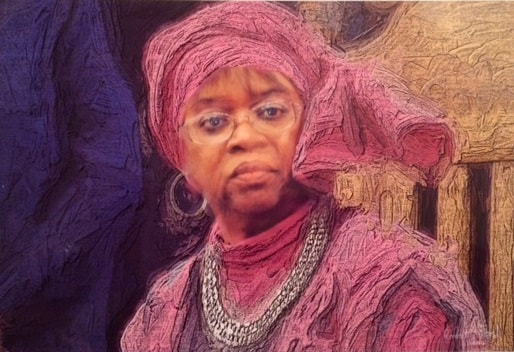|
For as long as I can remember, I have embraced my African roots. I’m not really sure where this came from. I was raised by my dad and he wasn’t accepting of his African ancestry or heritage. It was even a point of contention when I was in college and I wanted to wear my hair in an Afro. I was very much caught up with the message of James Brown’s song “Say It Loud, I’m Black and I’m Proud.” I wanted to show my pride by wearing my hair natural and my dad was anything but pleased. He felt I was taking a step backward, and I think he was concerned about how I would be perceived in my prestigious, predominately white college. All of my life my dad always shared with me about what it meant to be a Black person in American society and the realities of discrimination and marginalization. However, he never demonstrated a connection with African culture. He was even rejecting of an African man that my sister was dating and made her give back gifts of African clothing. He never stated why he was so against our brothers and sisters from Africa but he made it very clear that he didn’t want to have anything to do with them and he wanted my sister and I to feel the same way. I suspect that his rejection of African culture was because he was like some Black people today who are still ignorant of their culture. They believe that our only connection with Africa is slavery and that is a part of our history they would like to forget. Many African Americans were never taught in school that slavery was only one episode in our history and that our African Ancestors were great kings, queens, mathematicians, and scholars. As I am often teaching about cultural competency, a frequent question that arises is what should we call people of African descent in America? Black or African American. I always encourage my students and workshop participants to ask people what they want to be called regardless of their race or ethnicity. I have heard Black people say, I’m not African American. I have no connection to Africa, I’m from Mississippi. Some vehemently deny they have anything to do with Africa. They know little or nothing about the continent, nor do they want to learn about it. It is very sad but it is directly related to the failing of our educational system that has sanitized history to make it more palatable to the majority population. There is an African proverb that states: “Until the lions have their own historians, the history of the hunt will always glorify the hunter.” This has been why so much of African/African American history and culture has been left out of our textbooks and the academic curriculum taught in our public schools/colleges. This makes it very difficult for African American people to know who they are, embrace their culture, and to be proud of their heritage. Several years ago, I came across a poem by Wayne Visser, I Am African, in a card and it immediately resonated with me. The beginning of the poem goes as follows: I am African Not because I was born in Africa But because Africa was born in me I am African Not because my skin is black But because my mind is empowered by Africa I am African Not because I live in Africa But because my soul is at home in Africa…. I would later adapt that poem and make it my own because it strongly reflected my sentiments toward Africa. It is who I am and it resonated with me even more after the first time I had an opportunity to visit the Motherland of Africa. All connections to our families of origin were lost when our African ancestors were stolen from their homeland, brought to this country, and taken from their parents. It made it impossible for us to really know who we are. Many of the other cultural groups do not have the same level of disconnection to their ancestry that African American people do. This significantly contributes to the lack of family cohesion that is so prevalent in the African American community today. We have to do a better job of educating everyone about African American history and culture but especially our children. Over the holidays one of our daughters gave my husband and I the gift of Ancestry DNA, something that we have both wanted for some time. James and I both anxiously awaited the results. I am pleased to say that after several decades, I finally know who I am. My results showed that I have a 54% ancestral connection to Cameroon, Congo and Bantu peoples with approximately a total of 72% ancestry from the continent of Africa. For many years I have been saying that even though I wasn’t born in Africa, that Africa was born in me. Now I know that I was right. I didn’t know it for sure but now I do. How comforting it is to know about my heritage and the foundation of my existence. With my new found knowledge, I will begin to search deeper into my family roots and when people ask me where I am from, I will proudly be able to tell them. Leave me a comment and tell me about what you know about your heritage. Do you know who you are? Do you know where your ancestors came from? Have you begun to explore your roots and your ancestry? If you have, what have you learned? What legacy do you want to leave your children and your grandchildren?
2 Comments
Necie
1/15/2019 06:12:34 pm
This was very good. I have always embraced my “blackness”. However, for about the past 5 years it’s something that I really think more about. I’m teaching my sons and daughters to love the skin they’re in. It’s sad that in 2019 schools have issues with us wearing our hair in its natural state. It’s also sad that we can’t express who we are through clothes and headwear without being put down and talked about. Because of you, my family will now celebrate Kwanzaa. I’m very excited to add this to our holiday traditions.
Reply
Leave a Reply. |
AUTHORRoberta Wilburn is an Inclusion Practitioner with over 35 years of experience working in higher education, and as a consultant in public and private K-12 schools, government, non-profit and community based organizations. She has conducted diversity, equity, and inclusion training regionally, nationally, and internationally. She is the author of books, chapters, and journal articles. Her work has been recognized with local and national awards. Some of her awards include the 2017 Insight Into Diversity Giving Back Award for Administrators in Higher Education, the YWCA Women of Achievement Carl Maxey Racial and social Justice Award, and the Heartwood Award for Cultural Enrichment and Community Service.
ASSOCIATE BLOGGERDenise Stripes has lived in Spokane, Washington for twenty years. She is a wife of a veteran and has three adult children. She is also an adjunct English instructor at Spokane Community College. She earned her doctorate in English Literature from Washington State University. Above all, Denise is a committed believer in Jesus Christ, and wishes to see justice in her community as Christ would show it. She is a firm advocate of the Courageous Conversation, and is honored to write guest blogs about the events facilitated by Wilburn and Associates, LLC.
Archives
April 2020
Categories |


 RSS Feed
RSS Feed